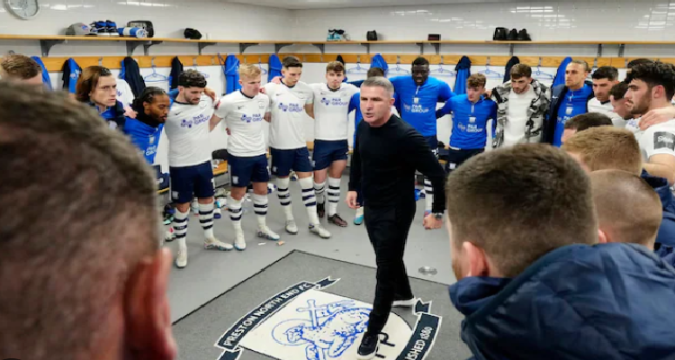
Football coaching certification is an essential pathway for anyone looking to turn their passion for the sport into a professional coaching career. Whether you’re aiming to coach youth teams, high school athletes, or professionals, obtaining the appropriate certification not only enhances your credibility but also equips you with the necessary knowledge and skills to foster player development effectively. This guide will walk you through the various levels of football coaching certification, their requirements, and essential tips for successfully navigating the certification process.
Understanding the Levels of Coaching Certification
Football coaching certifications are generally structured in a tiered system, reflecting increasing levels of expertise and specialization. While specific certifications may vary by country or organization, most follow a similar framework:
- Grassroots Level: This is the entry-level certification designed for individuals who are new to coaching or working with young players. Grassroots courses cover the fundamental aspects of football coaching, including the basic rules of the game, coaching methodologies, and player safety. These courses often emphasize creating a positive learning environment for youth players.
- Intermediate Level: After completing the grassroots course, coaches can progress to intermediate-level certification. This level typically dives deeper into coaching principles, player development strategies, and effective communication techniques. Coaches will learn how to design training sessions that cater to the specific needs of their players and understand the importance of tactical awareness.
- Advanced Level: The advanced coaching certification is for those who have significant coaching experience and wish to specialize further. This level focuses on advanced tactical concepts, performance analysis, and coaching methodologies for higher-level competition. Candidates are often required to demonstrate their coaching abilities through practical assessments and complete a series of advanced coursework.
- Elite or Professional Level: For coaches aiming to work at the highest levels of the game, elite coaching certifications are available. These programs are rigorous and designed for individuals with extensive coaching backgrounds. The curriculum includes advanced tactics, sports psychology, and team management strategies. Coaches at this level often work with professional teams or national programs.
Requirements for Certification
The requirements for each level of coaching certification can vary based on the governing body or organization. However, some common prerequisites may include:
- Age: Many organizations require candidates to be at least a certain age, often around 18 years old, to apply for coaching courses.
- Prerequisite Courses: Coaches must complete prerequisite courses before advancing to higher levels. For instance, completing a grassroots course is typically mandatory before pursuing an intermediate certification.
- Practical Experience: Most certifications require candidates to gain practical coaching experience. This may involve volunteering with youth teams, serving as an assistant coach, or leading your own team. Documenting this experience is often a requirement for certification applications.
- Examinations and Assessments: Candidates must pass written examinations and practical assessments to demonstrate their understanding of coaching principles and their ability to apply these concepts effectively. The assessment methods may vary, but they generally include both theoretical and practical components.
Tips for Successfully Navigating the Certification Process
- Research Certification Programs: Begin by researching the football coaching certification programs available in your area or country. Understanding the specific requirements and pathways will help you plan your educational journey effectively. Visit the official websites of governing bodies to gather information on courses, schedules, and application processes.
- Start with Grassroots Certification: If you’re new to coaching, it’s advisable to start with a grassroots certification. This foundational course will provide you with essential coaching principles and introduce you to the world of football coaching. It’s also a great way to network with other aspiring coaches.
- Gain Practical Experience: As you progress through the certification levels, focus on gaining practical coaching experience. Volunteering with local clubs, schools, or youth teams will help you apply what you’ve learned in your courses. This hands-on experience is invaluable for building your confidence and refining your coaching style.
- Stay Informed About Trends: Football is an ever-evolving sport, so it’s crucial to stay informed about the latest coaching trends, techniques, and research. Attend coaching clinics, workshops, and seminars to learn from experienced coaches and stay current with developments in the field.
- Build a Support Network: Connect with fellow coaches, mentors, and experienced professionals in the football community. Networking can provide valuable insights, resources, and support as you navigate the certification process and advance in your coaching career.
- Embrace Continuous Learning: Even after obtaining your certification, remember that learning never stops. Engage in ongoing education opportunities, read coaching literature, and explore advanced training options to continually enhance your coaching skills and knowledge.
- Be Patient and Persistent: Earning your football coaching certification is a journey that requires time and dedication. Be patient with yourself and stay committed to your goals, even when faced with challenges. Your passion for the sport will be your greatest motivator.
Conclusion
Obtaining a football coaching certification is a significant step toward turning your passion for the sport into a fulfilling professional career. By understanding the various levels of certification, meeting the necessary requirements, and following these tips for success, you can navigate the certification process effectively. Whether you aim to coach youth teams, high school athletes, or professional players, a coaching license not only validates your skills but also empowers you to make a positive impact in the lives of aspiring footballers. Embrace the journey, continue to learn, and inspire the next generation of football players.